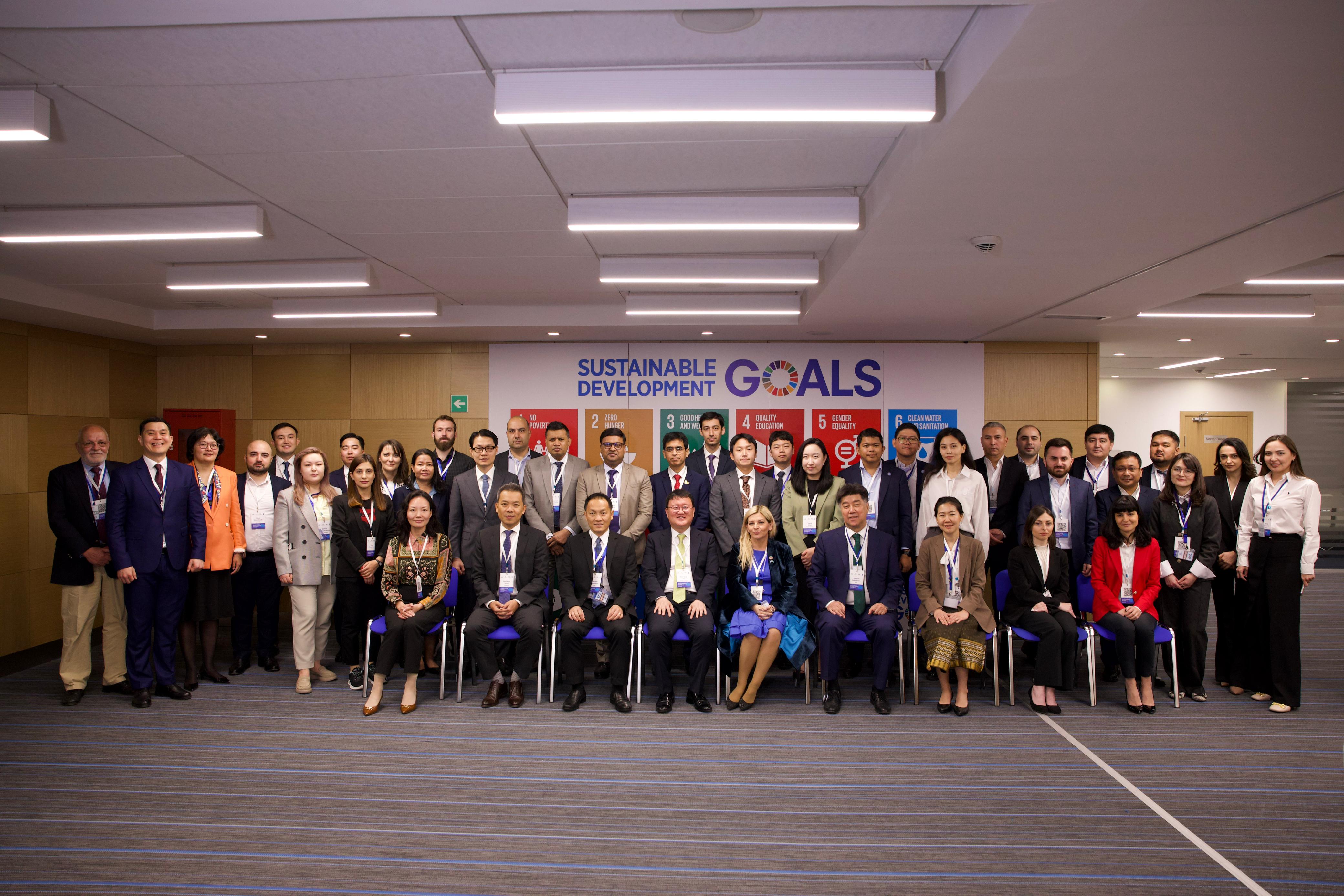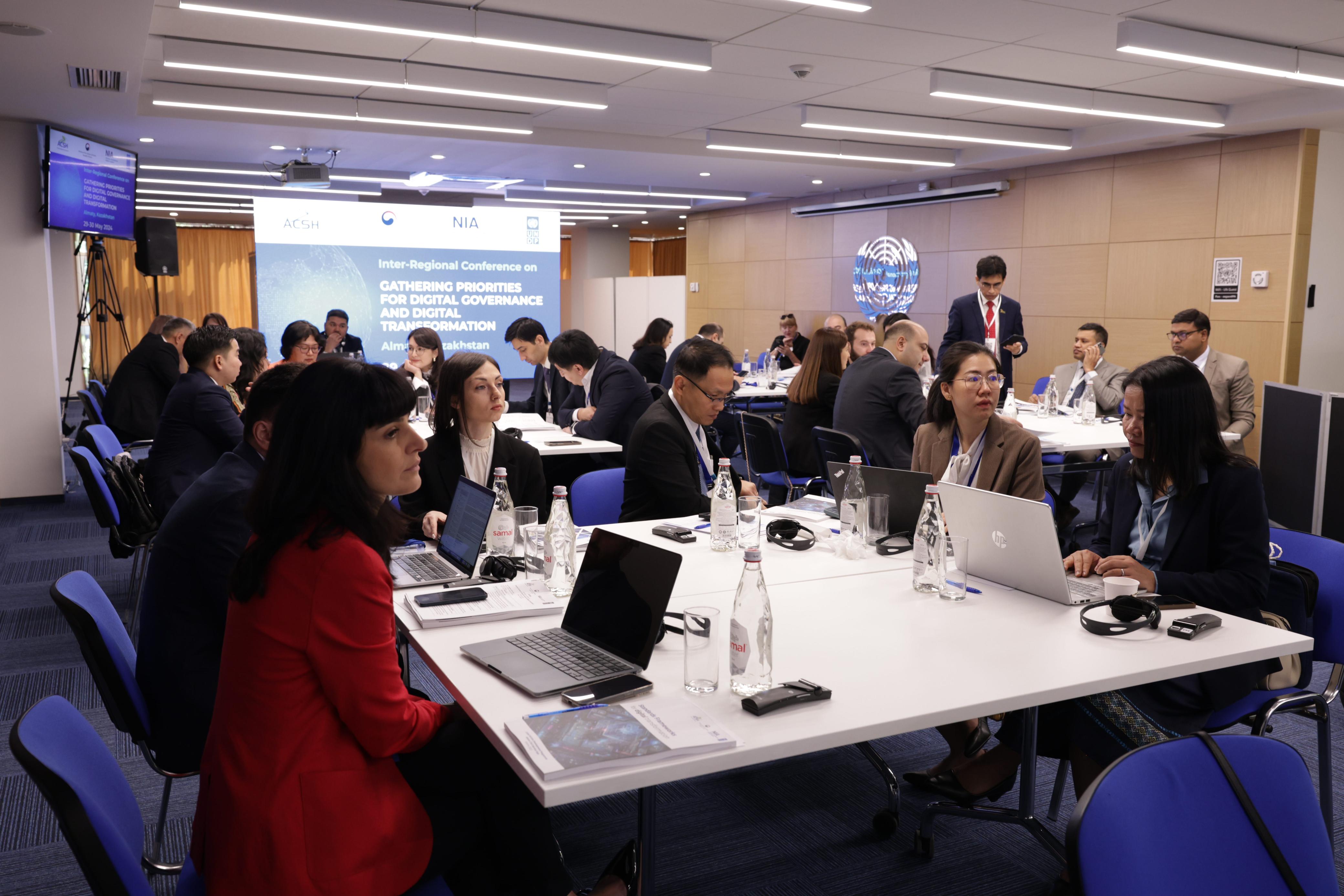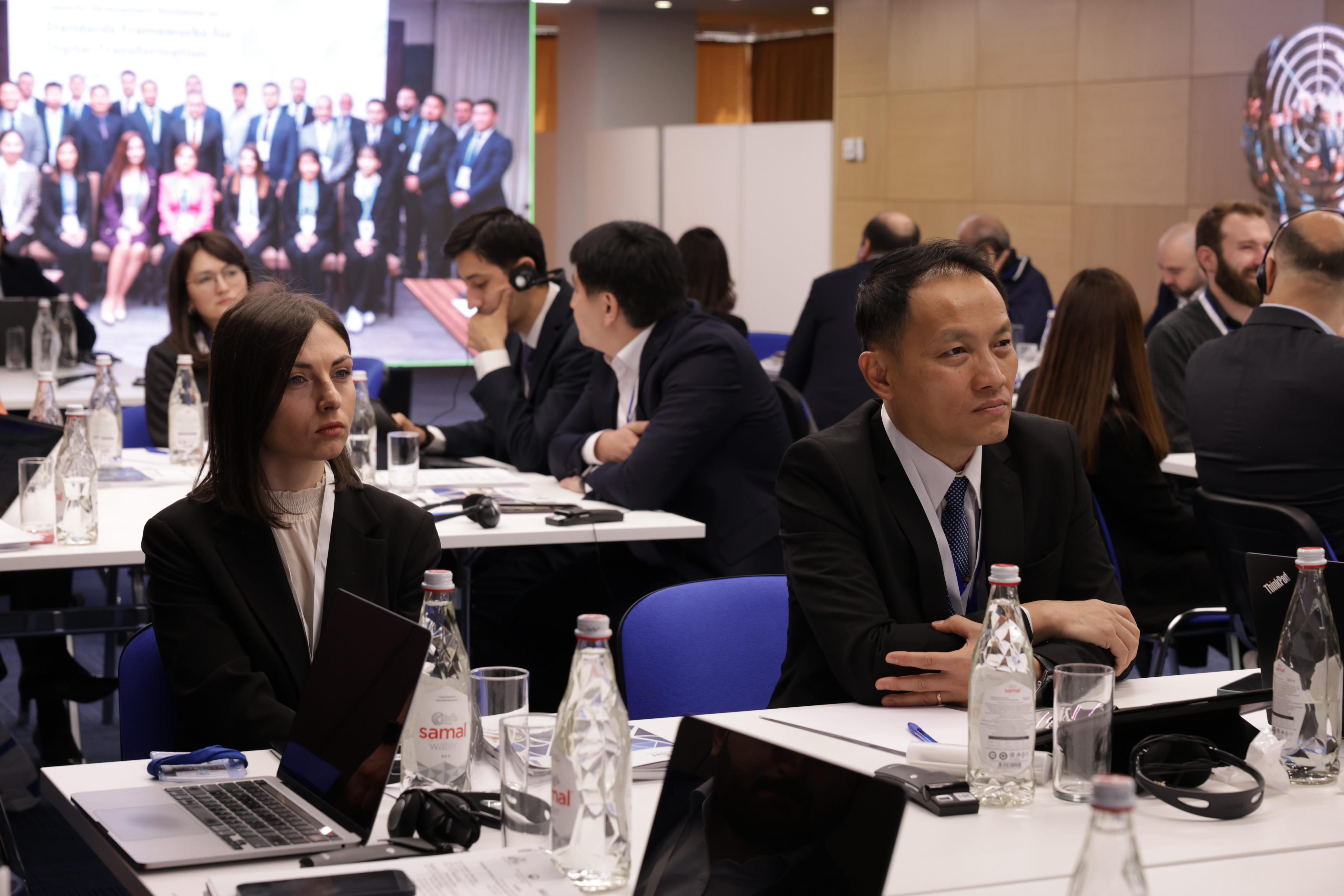A Digital Transformation in the Public Sector Project involving 12 countries has been launched in Kazakhstan.

A regional project funded by the Government of the Republic of Korea and aimed at further advancing digital government in twelve countries across Central Asia, the Caucasus, and the Asia-Pacific regions has commenced in Almaty. Over 50 representatives from government agencies and leading experts from 13 countries gathered at the project's inaugural event – the Inter-regional conference "Gathering Priorities for Digital Governance and Digital Transformation."
The conference, organized by the Astana Civil Service Hub, the Ministry of the Interior and Safety (MOIS), and the National Information Society Agency (NIA) of the Republic of Korea, along with UNDP in Kazakhstan, provides participants with the opportunity to learn from the best international practices and case studies in the field of innovation and digitalization in public administration.
Opening the conference, UNDP Resident Representative in Kazakhstan Katarzyna WAWIERNIA noted that “today, digital technologies are fundamentally changing the context and tools for development”. “I am proud to say that with this new initiative, we aim to create an enabling environment for digital transformation by leveraging Korea's successful experiences for the benefit of participating countries. Through knowledge sharing, best practices and research, hands-on workshops, and study tours, we will empower public officials of participating countries to navigate the digital transformation of governance systems and provide more responsive and effective services to citizens,” said Katarzyna Waviernia.
Won-Gab JO, Director of the Digital Security Policy Division at the Digital Government and Innovation Office, MOIS, underscored the importance of collaboration within the regional project, which has achieved significant results among seven countries over the past three years and has now expanded to include 12 countries. The project helps participants achieve tangible success in digital transformation. Mr. Won-Gab JO expressed the readiness to share Korea's vision and achievements in the field of digital government.
Chairman of the Steering Committee of the Astana Civil Service Hub, Alikhan BAIMENOV, noted that “digitalization is currently one of the important tools of governance”. “In today's interconnected world, digital governance is essential for optimizing administrative processes, improving decision-making, and fostering innovation to address pressing issues. This contributes to the creation of transparent and efficient public services, as well as increasing citizen engagement and trust” said Baimenov. In this context, the speaker highlighted the significance of the project with the Government of the Republic of Korea, which was highly praised by the participating countries laying the foundation for a new project with the expansion of the participant pool.
Experts from the Republic of Korea, a world leader in the OECD Digital Government Index, presented the Korean path to digital transformation, including strategies, innovations, and legislative aspects.
Representatives from the Caucasus (Georgia, Armenia, and Azerbaijan) and Central Asia (Kazakhstan,) and the Asia-Pacific region (Bangladesh, Cambodia) introduced participants to the principles of their governments' digital platforms during the first day of the conference.
On the second day, May 30, experiences from Central Asia (Kyrgyzstan, Tajikistan Uzbekistan) and the Asia-Pacific region (Philippines, Laos, Mongolia) have been showcased.
Throughout the conference, participants engaged in discussions and exchanged ideas, benefiting from the insights and recommendations of leading experts on the effective advancement of digital governance. Additionally, they outlined priority areas for cooperation and activities within the joint project.
***
The project "Capacity Development of Public Servants for Advancing Digital Transformation and Digital Governance", funded by the Government of the Republic of Korea, is planned for three years (2024-2026).
It will be implemented by the Astana Civil Service Hub and UNDP in partnership with MOIS and NIA. The project aims to enhance the capacities of civil servants to advance digital transformation and governance in twelve countries of Central Asia (Kazakhstan, Kyrgyzstan, Tajikistan, and Uzbekistan), the Caucasus (Armenia, Azerbaijan, and Georgia), and the Asia-Pacific region (Bangladesh, Cambodia, Lao PDR, Mongolia, and the Philippines).
The project builds on the experience and achievements of the previous joint project, which focused on the digitalization of public services and was successfully implemented from 2021 to 2023. The previous project included research, conferences, seminars, and training programs, involving around 200 civil servants from the Caucasus and Central Asia regions.
Materials of the conference are available here: presentations and photos
Video highlights





